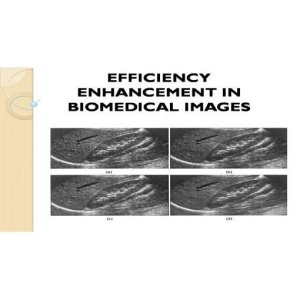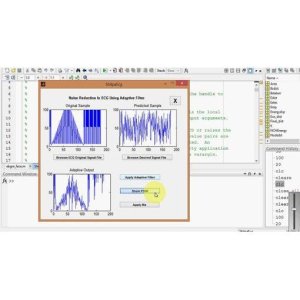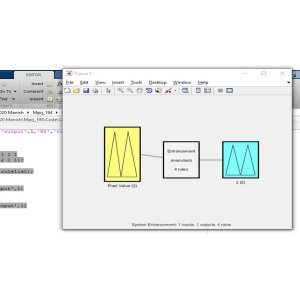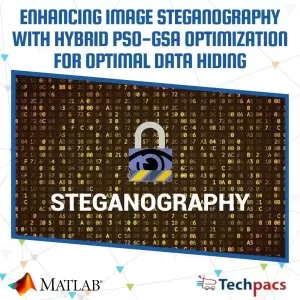Enhancing Speed Control in Three-Phase Squirrel Cage Induction Motors through Hybrid PID-ANFIS Controller Integration
Problem Definition
The speed control of induction motors is a critical aspect of many industrial processes, and the use of traditional PID controllers presents limitations in achieving optimal performance. The main issue lies in determining the most suitable gain value for the PID controller to ensure a superior response from the induction motor. This difficulty often results in less efficient speed control, which can lead to suboptimal performance and increased energy consumption. As a result, there is a clear need for an enhanced solution that can overcome these limitations and provide more desirable results in terms of induction motor speed control. By addressing this problem, industries can improve their overall efficiency and productivity while reducing energy costs and minimizing equipment wear and tear.
Objective
The objective is to enhance the efficiency of speed control for induction motors by implementing a hybrid controller that integrates Anfis and PID controllers. This aims to address the limitations of traditional PID controllers, leading to improved performance in terms of settling time, overshoot, rise time, and steady-state error. The research will use MATLAB to evaluate the performance of the hybrid system and compare the results with those obtained from an existing algorithm, aiming to demonstrate the benefits of using a hybrid controller in optimizing induction motor speed control.
Proposed Work
The research focuses on addressing the limitations of the traditional PID controller when it comes to controlling the speed of an induction motor. By implementing a hybrid controller that integrates Anfis and PID, the aim is to enhance the efficiency of the speed control system. The Anfis controller, known for its adaptability and accuracy in handling fuzzy systems, is expected to refine the responsiveness of the induction motor. By utilizing MATLAB, the performance of the hybrid system will be evaluated by analyzing key parameters such as settling time, overshoot, rise time, and steady-state error. This approach not only aims to optimize the speed control of the induction motor but also provides a comprehensive comparison with the results obtained from an existing algorithm.
Through this project, the research seeks to demonstrate the potential benefits of leveraging a hybrid controller in enhancing the performance of induction motors under varying loads.
Application Area for Industry
This project's proposed solutions can be applied in various industrial sectors such as manufacturing, automotive, energy, and robotics. Industries face challenges with induction motor speed control using traditional PID controllers, resulting in inefficiency and suboptimal performance. By integrating an Anfis controller with the existing PID controller, a hybrid system is created that adapts to changes and refines the induction motor's responsiveness, ultimately leading to improved speed control.
Implementing these solutions in industrial domains can result in benefits such as enhanced efficiency, improved productivity, reduced energy consumption, and optimized performance. The integration of Artificial Intelligence and fuzzy systems in the control system allows for better adaptation to varying loads and operating conditions, leading to smoother operation, faster response times, and more precise control over rotor speed and torque values.
Overall, the use of this hybrid system can help industries achieve better control over their induction motor systems, leading to increased reliability, reduced maintenance costs, and improved overall performance.
Application Area for Academics
The proposed project holds great potential to enrich academic research, education, and training in the field of control systems and artificial intelligence. By integrating the Anfis controller with the traditional PID controller for speed control of an induction motor, this research offers a new approach to improving system performance.
Academically, this project presents an opportunity for researchers, MTech students, and PHD scholars to delve into the realm of hybrid control systems and fuzzy logic. The code and literature developed as part of this project can serve as a valuable resource for those looking to explore innovative research methods and simulations in the field.
Educationally, this project can be utilized in training programs to introduce students to advanced control strategies and AI applications in industrial settings.
By demonstrating the effectiveness of the hybrid system in improving speed control of induction motors, educators can enhance the learning experience for students pursuing courses in control systems or electrical engineering.
Furthermore, the relevance of this project extends to its potential applications in industries where precise control of motor speed is crucial. The integration of AI and fuzzy logic systems can lead to more efficient and responsive control systems in various industrial processes.
In the future, researchers can build upon this project by exploring new hybrid control systems and integrating advanced AI technologies for enhanced performance. The findings from this research can pave the way for further advancements in the field of control systems and automation.
Algorithms Used
The project utilizes the PID controller, a conventional control loop feedback mechanism used in industrial control systems, and the Adaptive Neuro Fuzzy Inference System (ANFIS), an artificial neural network based on Takagi–Sugeno fuzzy inference system. The aim is to create a hybrid system by integrating the ANFIS controller with the PID controller to improve the responsiveness of the induction motor. The model was developed using MATLAB, and various performance parameters were calculated and compared with the existing algorithm. The system's performance was evaluated under varying loads, and results were observed for rotor speed and torque values. Comparative analysis was conducted against a base paper to validate the model.
Keywords
SEO-optimized keywords: Speed Control, Induction Motor, Hybrid System, ANFIS Controller, PID Controller, Artificial Intelligence, Fuzzy Systems, Performance Parameters, Settling Time, Overshoot, Rise Time, Steady State Error, MATLAB, Neurophysiology System, Optimal Solution, Motor Response, Gain Value, Enhanced Solution, Responsive Control, Hybrid Model, Modeling, Performance Evaluation, Load Variation, Rotor Speed, Torque, Comparative Analysis, Base Paper Validation.
SEO Tags
speed control, induction motor, hybrid system, ANFIS controller, PID controller, artificial intelligence, fuzzy systems, performance parameters, settling time, overshoot, rise time, steady state error, comparative results, MATLAB, neurophysiology system, optimal solution, induction motor response, induction motor speed control, rotor speed, torque values, research proposal, PhD research, MTech project, research scholar, control theory, engineering research, MATLAB simulation, AI in motor control, motor control algorithms, motor control strategies, control system design
| Shipping Cost |
|
No reviews found!




















































No comments found for this product. Be the first to comment!